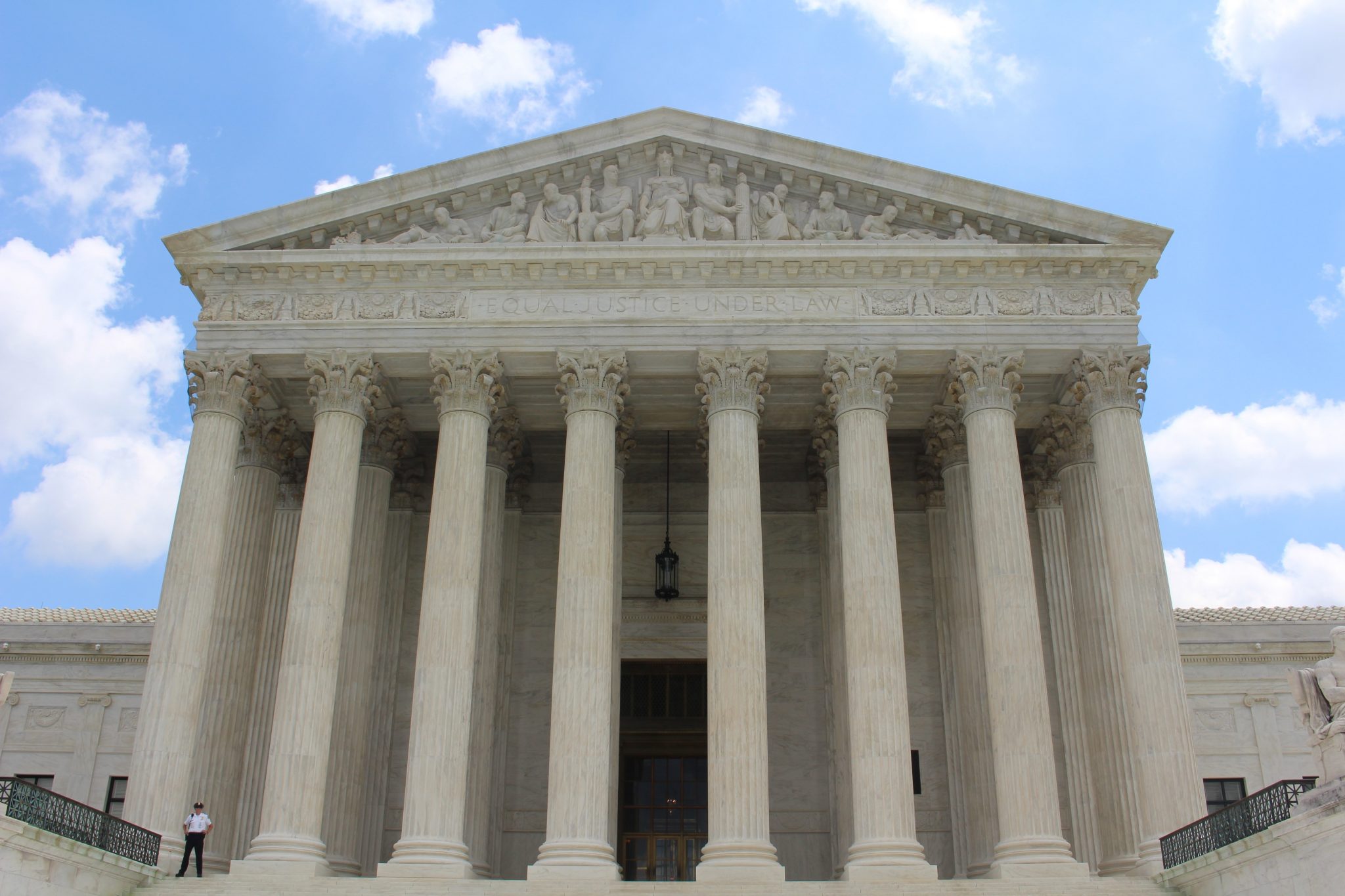Because the Supreme Court doesn’t provide a SparkNotes version of their decisions, we’re putting their latest ruling—South Dakota v. Wayfair, Inc.—in layman’s terms. With Wayfair, the Supreme Court rules that states have the power to require out-of-state and online vendors to collect taxes. The court officially ruled 5-4* on June 21, 2018, effectively overruling precedence set by earlier cases, most notably National Bellas Hess v. Illinois (1967) and Quill Corp. v. North Dakota (1992).
National Bellas Hess, Inc. was a mail-order business stationed in Missouri that had many customers from Illinois. The state argued it should be able to require the company to collect taxes on sales from customers ordering in Illinois. Bellas Hess determined that states couldn’t force out-of-state vendors to collect taxes if the vendor lacks a physical presence in that state and only conducts business via mail or some common carrier (as was the case with Bellas Hess and their Illinois customers):
the Court held in Bellas Hess that a “seller whose only connection with customers in the State is by common carrier or . . . mail” lacked the requisite minimum contacts with the State required by the Due Process Clause and the Commerce Clause, and that unless the retailer maintained a physical presence in the State, the State lacked the power to require that retailer to collect a local tax. (Wayfair, 2018)
Quill overturned Bellas Hess’s holdings on due process but not on the Commerce Clause. As stated in Wayfair, Quill decided that “a business need not have a physical presence in a State to satisfy the demands of due process.” However, the case still ultimately agreed with the Bellas Hess holding that a business needs a strong physical presence in a state before states could impose collection of taxes:
Bellas Hess . . . stands for the proposition that a vendor whose only contacts with the taxing State are by mail or common carrier lacks the “substantial nexus” [significant physical presence] required by the Commerce Clause. (Quill, 1992)
South Dakota v. Wayfair overturns these decisions “[b]ecause the physical presence rule as defined by Quill is no longer a clear or easily applicable standard, [so] arguments for reliance based on its clarity are misplaced.” Simply put, Quill and Bellas Hess are outdated, with practices that no longer apply in an online era.
With Wayfair, the Supreme Court says that states can collect on this source of revenue. Not only would prohibition of this be a potential infringement on states’ powers to levy taxes, but it would also be disastrous in the age of the Internet; Wayfair argues the loss of revenue (an estimated $48-58 million annually for South Dakota alone) could lead to states’ inability to provide services and perform other functions. Online transactions are now a common practice. Millions of consumers now bring their business online, meaning that there are less physical transactions taking place upon which states can impose sales taxes. To continue the precedence set by Bellas Hess and Quill would place excessive burdens on local taxes and consumers who do the majority of their transactions offline.
What this ruling will look like in action and how it will be implemented remains to be seen, as the Wayfair ruling does not give parameters for how states should go about requiring tax collection from out-of-state sellers.
*Justice Kennedy presented the ruling, with Justices Alito, Ginsburg, Thomas, and Gorsuch concurring, and Chief Justice Roberts and Justices Breyer, Kagan, and Sotomayor dissenting.



